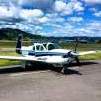-
Posts
5,571 -
Joined
-
Last visited
-
Days Won
27

Ragsf15e replied to Ragsf15e's topic in General Mooney Talk

Ragsf15e replied to Ragsf15e's topic in General Mooney Talk

Ragsf15e replied to Ragsf15e's topic in General Mooney Talk

Ragsf15e replied to Ragsf15e's topic in General Mooney Talk

Ragsf15e replied to Ragsf15e's topic in General Mooney Talk

Ragsf15e replied to generalaviationguru's topic in General Mooney Talk

Ragsf15e replied to Echo's topic in Vintage Mooneys (pre-J models)

Ragsf15e replied to RoundTwo's topic in General Mooney Talk

Ragsf15e replied to billy hellcat's topic in Vintage Mooneys (pre-J models)
We have placed cookies on your device to help make this website better. You can adjust your cookie settings, otherwise we'll assume you're okay to continue.